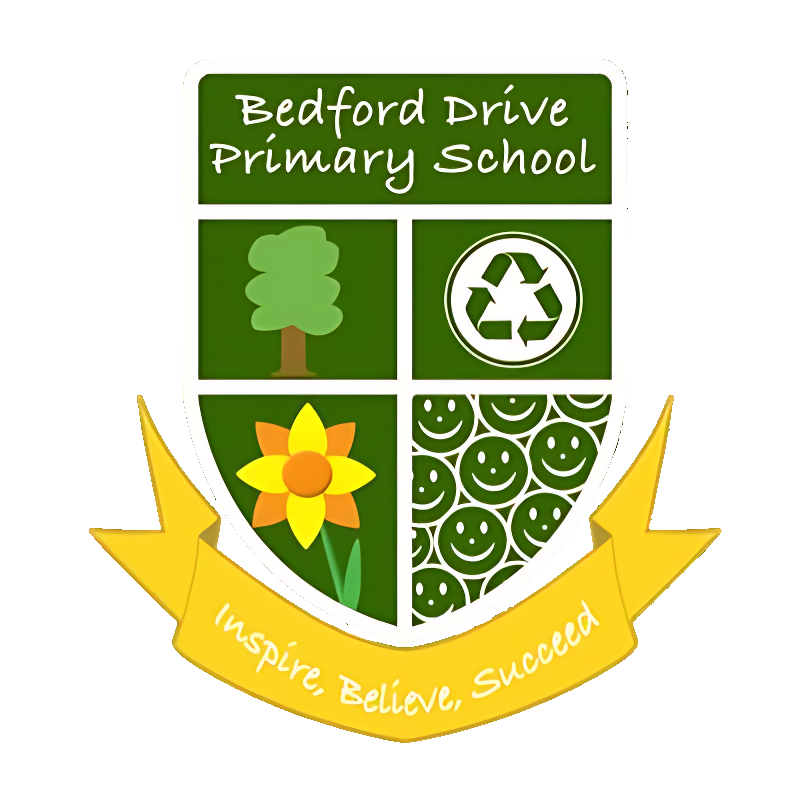SMSC at Bedford Drive Primary School
Spiritual, Moral, Social and Cultural Development (SMSC)
“To educate the whole child, his heart and his will must be reached, as well as the mind.”
Spiritual, Moral, Social and Cultural (SMSC) development is the over-arching umbrella that encompasses personal development across the whole curriculum. SMSC is ‘at the heart’ of school ethos. It helps children aspire to be the best person they can be locally, nationally and globally. We have high expectations for all our pupils in every aspect of SMSC.
The spiritual development of pupils is shown by their:
ability to be reflective about their own beliefs (religious or otherwise) and perspective on life
knowledge of, and respect for, different people’s faiths, feelings and values
sense of enjoyment and fascination in learning about themselves, others and the world around them
use of imagination and creativity in their learning
willingness to reflect on their experiences
The moral development of pupils is shown by their:
ability to recognise the difference between right and wrong and to readily apply this understanding in their own lives, recognise legal boundaries and, in so doing, respect the civil and criminal law of England
understanding of the consequences of their behaviour and actions
interest in investigating and offering reasoned views about moral and ethical issues and ability to understand and appreciate the viewpoints of others on these issues.
The social development of pupils is shown by their:
use of a range of social skills in different contexts, for example working and socialising with other pupils, including those from different religious, ethnic and socio-economic backgrounds
willingness to participate in a variety of communities and social settings, including by volunteering, cooperating well with others and being able to resolve conflicts effectively
acceptance and engagement with the fundamental British values of democracy, the rule of law, individual liberty and mutual respect and tolerance of those with different faiths and beliefs; they develop and demonstrate skills and attitudes that will allow them to participate fully in and contribute positively to life in modern Britain.
The cultural development of pupils is shown by their:
understanding and appreciation of the wide range of cultural influences that have shaped their own heritage and that of others
understanding and appreciation of the range of different cultures in the school and further afield as an essential element of their preparation for life in modern Britain
ability to recognise, and value, the things we share in common across
cultural, religious, ethnic and socio-economic communitiesknowledge of Britain’s democratic parliamentary system and its central role in shaping our history and values, and in continuing to develop Britain
willingness to participate in and respond positively to artistic, musical, sporting and cultural opportunities
interest in exploring, improving understanding of and showing respect for different faiths and cultural diversity and the extent to which they understand, accept and respect diversity. This is shown by their respect and attitudes towards different religious, ethnic and socio-economic groups in the local, national and global communities
There are a number of ways that you can support your child with their learning at home and Mrs Curtis has made the following suggestions:
Take a trip to an art gallery or museum or to a musical event.
Join a club – Brownies, Drama, Gymnastics or a library to learn new skills and make new friends!
Be a good role model to others – help around the house, behave in an appropriate manner wherever you are and treat others with kindness and respect
Visit a local church or cathedral. Learn about a different faith to your own.
Learn more about your locality. Do a project on New Brighton or Birkenhead Park!
All National Curriculum subjects provide opportunities to promote pupils' spiritual, moral, social and cultural development. ... We recognise that the personal development of pupils, spiritually, morally, socially and culturally (SMSC) plays a significant part in their ability to learn and achieve.




